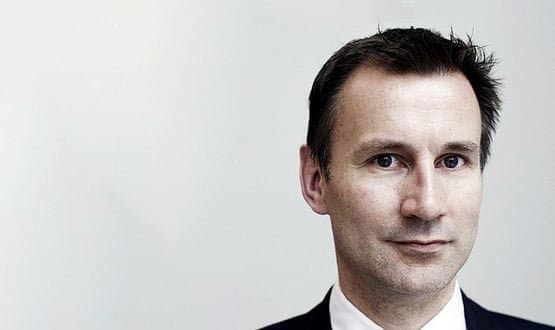The government’s plan to sequence 100,000 human genomes and link these to electronic health records will be “as significant as the founding of the Internet”, health secretary Jeremy Hunt said at a US conference yesterday.
Hunt was speaking at the Health Datapalooza event in Washington to an audience of policy makers and technology companies .
Medcity News reports that he claimed that the UK government’s project to sequence 100,000 genomes over the next three to five years and match this with electronic medical record data would be “as significant as the founding of the Internet”.
“If a person has bowel cancer in his 70s and you have EMR data about what that person was doing in his 40s and 50s, you can unlock an incredible amount of information,” he said.
He told the audience that the UK was in the third stage of technology’s transformation of health care.
The first stage was the power of data to be completely transformative, the second was the transactional ability to book appointments and order medications online and the third was the ability to “put patients in the driver’s seat”.
Hunt claimed the UK was in the third stage and this had allowed for six improvements in patient care and data analysis.
As well as the genome project, he cited the summary care record programme, which he said was on-track to have 50m records uploaded within the next year, and the Friends and Family test being implemented across all hospitals.
Also, the 3millionlives programme, which aims to see 3m people benefit from telehealth by 2017, and the publication of outcomes data for 10 specialties to drive up the quality of care.
Hunt also talked about a programme called Care Connect, which he described as two pilots set to launch soon in two hospitals for patients to provide feedback online about the healthcare services they receive.
Hunt said people of all generations could embrace technology, which he said was key to making universal healthcare affordable.
“Spending money on proper IT systems means nurses don’t have to spend two-thirds of their time filling out paperwork in the ER,” he said.

